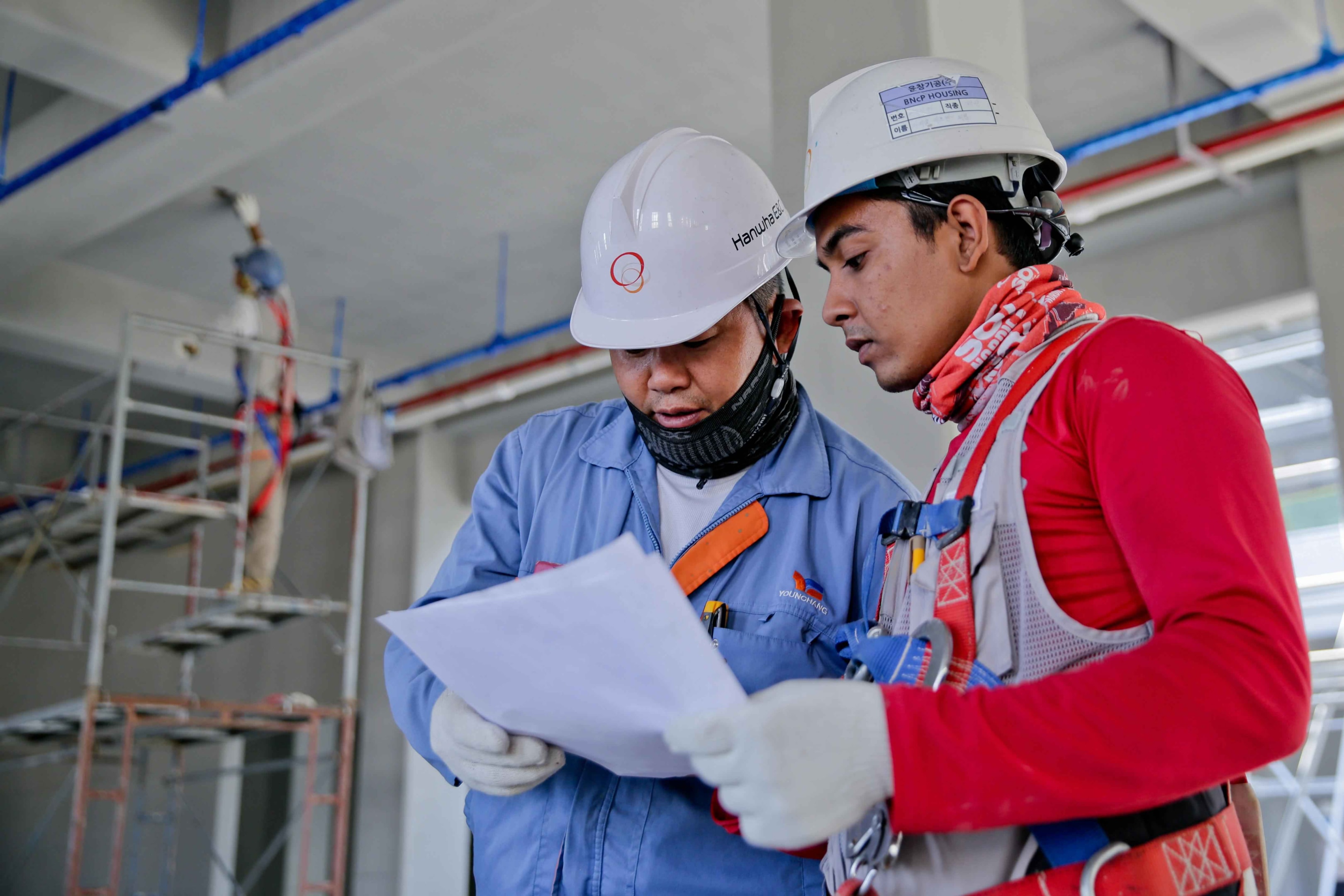If you are considering hiring a construction manager and need to compile a job description, we have some pointers to help you assess the key responsibilities, skills, and experience you need for the role.
What is a Construction Manager?
A construction manager may also be known as a construction project manager and is involved in building projects, overseeing the whole process from start to finish. The project may be small, such as residential projects renovating or building new homes, or more significant commercial ventures, such as creating new offices or retail spaces. They can also be projects that create vital infrastructure such as bridges, roads, and tunnels or provide industrial buildings like factories and warehouses.
Construction managers can be responsible for the whole site, or they may look after one part of a larger-scale project. As they are responsible for the entire process, the construction manager will be involved in planning and budgeting at the start of the process and managing the work while it is happening to ensure that it is being done efficiently and safely. They will make sure that everything is completed on time and to budget and that it meets the required quality and safety standards. Construction managers work closely with engineers, architects, tradespeople and contractors, government officials such as safety officers, the workforce on site and, of course, the clients who have commissioned the job in the first place.
Creating the Job Description
To get the best candidates applying for your construction manager roles, a job description should cover the following areas:
Responsibilities
Construction managers can have many different responsibilities:
- Project planning: ensuring everything is coordinated from the conception of the work, what happens during the construction period and the final phases of handing the finished project to the client.
- Scheduling: ensuring all the different schedules involved in the project align to meet the overall requirements.
- Budgeting: estimating, setting, and tracking the budget for the project, as well as problem-solving to keep within budget as necessary.
- Track inventory: select appropriate tools, materials, and equipment for the job, track their use across the project, and ensure costs are within budget.
- Quality control: ensure the use of correct techniques and materials to maintain a high quality of work, including inspecting materials regularly.
- Legal compliance: ensuring all work on-site and off-site is completed safely and to the quality controls required by legal standards and building and safety regulations.
- Management of construction workers, including recruitment, supervising and monitoring all the different types of staff, from paid employees to subcontractors.
- Communication: reporting on progress and communicating how issues are being resolved to clients, partners, local communities, and any other key stakeholders.
- Collaboration: creating strong working relationships with all the professionals involved in the construction process, such as engineers, architects, contractors, and government officials.
- Reviewing: checking the progress of the work daily to identify potential issues and ensure that the work is progressing as planned.
- Reporting: creating reports for internal and external stakeholders on the project’s progress.
- Negotiate agreements: across all areas of the project, including those required by subcontractors and permits and licences from local authorities.
- Risk management: analyse potential issues and create contingency plans to mitigate risks and respond to any emerging problems.

Requirements
Within any job description, the requirements and skills section is essential to ensure complete clarity for candidates on the expertise and experience required to perform the role. Some companies will divide this section into essential requirements and those requirements which a candidate will ideally have but the absence of them will not necessarily stop them from getting the role. Other companies will divide this section into Skills, Experience and Qualifications.
Skills
The following skills are usually required for construction management roles:
- Communication
- Project management
- Time management
- Leadership and people management
- Collaboration and teamwork
- Planning and strategy
- Problem-solving and crisis management
Experience
- Proven experience working in construction management.
- Knowledge of construction management processes, methods, and approaches, including building materials.
- Detailed understanding of the regulations and quality standards in the industry.
- Familiarity with software packages for construction management.
Qualifications
For management positions, many companies will require formal qualifications such as:
- Foundation, Higher National Diploma (HND) or degree level qualification in construction management, architecture, engineering or a related field.
- Apprenticeship position in a construction company.
Compensation Package
The construction manager job description should contain details about the compensation package, which will depend on the project’s specifics, the role’s exact requirements, and the location.
Compensation includes the salary and benefits your company can offer the construction manager. Gathering benchmarking information on salaries will ensure you are paying competitively. Benefits packages vary from organisation to organisation and are an excellent way to attract talent, support individual employees and build a positive company culture.
Benefits can include:
- Discount schemes
- Employee assistance schemes
- Health insurance
- Private pension plans
- Training and development opportunities
- Flexible working arrangements
For construction manager roles, it is also essential to detail specific requirements regarding where the role will be based (e.g., on the construction site or in the company’s office) and who will provide any special equipment required, such as hard hats, steel-toed boots and gloves. As safety is so crucial in the construction industry, it is also a good idea to include any training requirements related to safety and quality control so that candidates are clear on expectations at the start of the application process.
About Us
This is the section to sell your company’s culture, achievements and ethos. Give an overview of the organisation and discuss why it’s such a good place to work.
How To Apply
Be crystal clear on how the application process works, where applications need to be submitted, and what the interview process will involve. It’s also essential under the Equality Act 2010 to include how you will accommodate candidates with additional needs.

